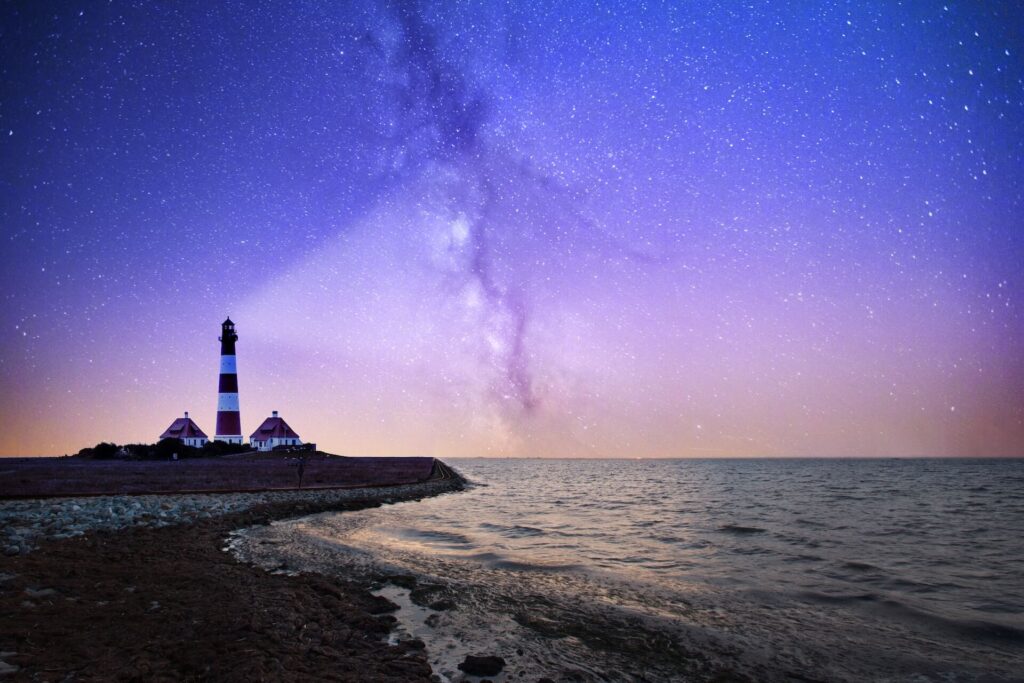
As an Amazon Associate, Modded gets commissions for purchases made through links in this post.
Lighthouses became prominent in the 19th century, guiding ships to safety as they navigated treacherous waterways. These tall towers didn’t operate independently — they had lighthouse keepers maintaining the structure and keeping the lights on. Now, it’s the 21st century. Is there anybody still hiring a lighthouse keeper? How can you get a job? What are the pros and cons of this career? Here’s everything you need to know about being a lighthouse keeper.
Are Lighthouse Keepers Still Getting Jobs?

Yes, you can still get a lighthouse keeper job in 2024. The demand in 2024 is lower than in 1924, but some jobs open up from time to time. For example, the Canadian government is hiring an assistant lightkeeper in British Columbia — think about the West Coast where Vancouver is. The job requires a Restricted Operators certificate and a Canadian residency. You’ll also need knowledge of operating mechanical and electrical equipment.
Do you know any lighthouse keepers in the United States? In December of 2022, the East Brother Light Station announced hiring two lighthouse keepers to upkeep the light station near Point San Pablo. Applicants must have a U.S. Coast Guard captain’s license, so you can’t have any average person applying for the job.
What Duties Do Lighthouse Keepers Have?
So, what do lighthouse keepers do daily? The job entails more than sitting in a chair and watching the lights go by. Here are some typical duties you’ll have as a lighthouse keeper.
Upkeep the Lighthouse
The first duty is maintaining the lighthouse— the lights and the tower itself. Seeing in the dark can be difficult for the boats at sea, so the lighthouse keepers must ensure the light shines as brightly as possible. Lives are on the line with people at sea, so the employees must do a superb job of cleaning daily. Plus, they had to be attentive at all times. In 19th-century Michigan, you could get fired for being intoxicated on the job.
The last thing you want is more interview prep, so ensure you’re fully aware of what’s happening.
Watching the Weather
When you’re watching ships go by, what’s the most danger the crew members could be in? Bad weather is the last thing you want to see, and lighthouse keepers must help boats when the weather is treacherous. During lousy conditions, you’ll have to report your weather readings to the National Weather Service, which sends warnings and advisories to the people at sea. From your vantage point, you’ll see hazards and other obstacles boats will face in your view.
Finding People in Distress
The weather at sea can get just as bad as it does on land. For example, you may see a tornadic waterspout or a water tornado. This phenomenon occurs when a tornado forms over water or transitions from the land to the sea. Like land tornadoes, these systems carry lightning, hail and strong winds.
When the storms strike, there may be people in distress. Who is the first person available to help? It’s the lighthouse keepers. These workers help search and rescue missions by directing emergency vessels toward the accident. They may report sightings and provide other assistance to the Coast Guard.
Hosting Visitors
Why so serious? The lighthouse keeper’s job isn’t always full of crises. Sometimes, you can relax and have a little bit more fun. One of the lighthearted duties of lighthouse keepers is hosting visitors. The spring and summer bring warmer weather and people to the coast. Have you ever taken a long road trip to the beach? Part of your job may include giving tours and teaching guests about the lighthouse’s history.

Perks of Being a Lighthouse Keeper
Being a lighthouse keeper isn’t the most conventional job, but it’s rewarding with these four benefits.
Decent Wages
Lighthouse keepers don’t make the same amount of money as a doctor or a lawyer, but there is a decent job market. The position has specific qualifications only a handful of people can fulfill, helping you earn a living wage. Plus, the economy doesn’t significantly affect the job, making it a recession-proof position.
ZipRecruiter says the national average for this position is over $24 per hour or a yearly salary edging $50,000. What about the lighthouse job in California? That job pays about $140,000 annually, which you’ll need in the Bay Area.
Location
In the age of remote work, many employees are going just about anywhere to get the job done. Some even work on the beach, watching the waves in the background. What if you could make the Pacific or Atlantic Coast your worksite daily? Lighthouses often provide spectacular ocean views, making just about anybody jealous of your office with a view.
Quietness

Do you like to work by yourself? Some people enjoy working in solitude as the hours pass by. Lighthouse keepers generally work by themselves for long stretches of the day. You may interact with other workers if the lighthouse has staff and boats needing assistance. Plus, you may have to give tours. Other than that, maintaining the lighthouse lets you be a lone wolf.
Learning Skills
Being a lighthouse keeper is rewarding because you get to learn new skills. For example, you’ll hone your craft with electrical work while keeping the lights on. How good are your navigational skills? You must be able to read maps and help boats as they’re out in the water. Lighthouse keepers typically work with advanced GPS systems to identify those in the ocean. Plus, you’ll need great search and rescue skills if you find someone in distress.
Challenges for Lighthouse Keepers
Lighthouse keepers have a rewarding job, but it’s not without challenges. The position comes with these four drawbacks.
Isolation
Quietness is a pro for some people. However, others enjoy constant interaction with others and a fast-paced environment. Life as a lighthouse keeper can quickly become quiet and boring for some. If you thrive on social interaction with co-workers and customers, there may be a better job than working in a lighthouse.
Remote Location
The coastlines provide postcard-worthy images for your Christmas cards. However, they can be pretty remote. Many lighthouses are in isolated places far away from the cities. You can live in a small-to-medium town and still drive an hour or more to work. Some people enjoy the drive and living in a small town, whereas others like being in the city. Remote locations can be a turnoff.
Dangers

Most days provide a calm and tranquil environment, but the job does provide some dangers. The conditions can especially be harmful when there’s lousy weather. You can’t call out and stay home when there are thunderstorms — you’re expected to stay and help those in the water. Also, you need to be comfortable with heights because lighthouses can be pretty tall when overlooking the ocean.
Lack of Advancement
The highest heights you’ll climb in your career are the stairs going up the ladder in your lighthouse. The room for career advancement isn’t necessarily strong for a lighthouse keeper, so this job is assuredly one for those with a passion. You need to love lighthouses more than you like being a CEO.
Lighthouse Keepers Paradise
We have plenty of teachers, doctors and lawyers in the country. While these professions are fantastic, we still need people to fill the odd jobs. One of those niche careers you can undertake is maintaining a lighthouse. Lighthouse keepers aren’t in demand like 100 years ago, but jobs in this field are still available. If you’re considering this career, check out these pros and cons to see what the job is like.
Originally posted 10/3/23 – Updated 2/15/24
Stay up to date with the latest by subscribing to Modded Minute.
Author
Jack Shaw is a senior writer at Modded. Jack is an avid enthusiast for keeping up with personal health and enjoying nature. He has over five years of experience writing in the men's lifestyle niche, and has written extensively on topics of fitness, exploring the outdoors and men's interests. His writings have been featured in SportsEd TV, Love Inc., and Offroad Xtreme among many more publications.





